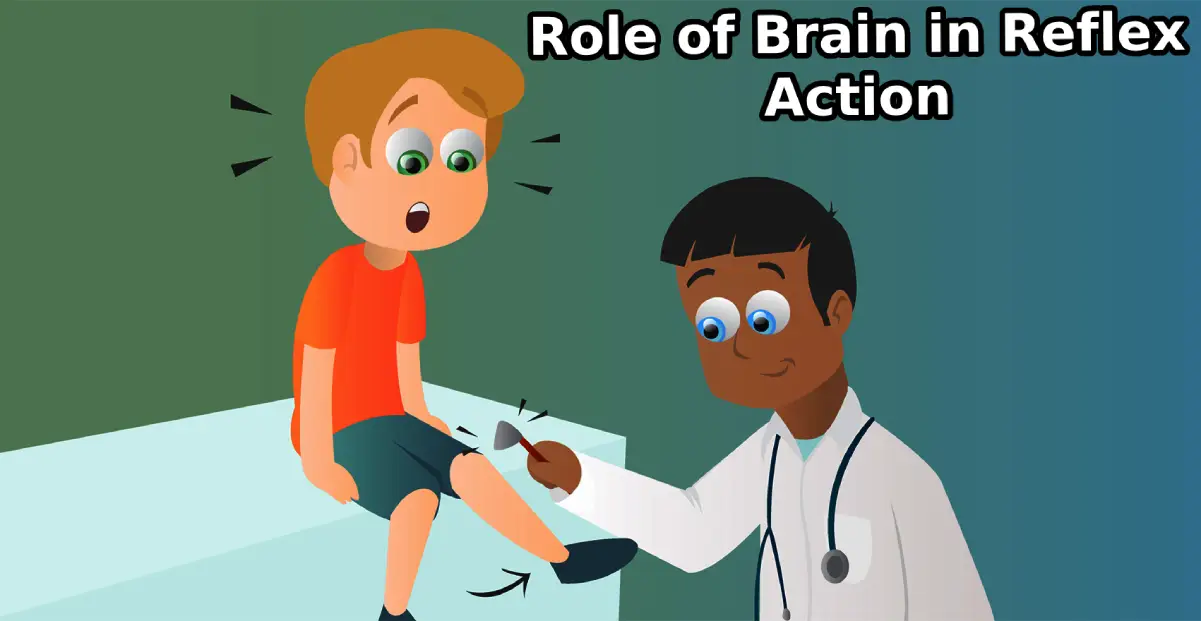What is the Role of Brain in Reflex Action: The brain, a unique organ that serves as the body’s command center, is responsible for various functions including adjustment of our thoughts, memories, and emotions. In addition, it plays an important role in our body’s automatic response.
But what is the role of the brain in reflex action? If you are looking for an answer to this question, this article will help you discover the interesting connection between and better understand brain function. Let’s start with the basics before diving deeper into the brain’s function in reflex action.
What is Reflex Action?
A reflex action is a quick, automatic response to a specific stimulus like heat, or pain. In simple words, these are unplanned actions that don’t require thought. Let’s use the example of touching a hot pan to understand reflex action better. As soon as it feels hot, your hand will pull away in a second to avoid injury. Although reflex actions look simple, they require complex coordination between immense body parts, including the brain.
What is the Role of Brain in Reflex Action?
Reflex actions are quick responses that do not involve any thinking. Imagine you are cooking and accidentally touch a hot object, you instantly pull your hand away. But what is the role of brain in reflex action? The brain is not involved in these rapid reactions, but it plays an important role in processing the sensory information that leads to them. However, not all reflex actions require direct involvement of the brain, it is involved in more complex reflexes and receives post-action information to enable an appropriate response such as sensing pain from a burn.
What is Reflex Arc?
When you touch a hot pot, the sensory nerves that detect heat are connected to nerves that move hand muscles. Such a connection of detecting signals from neural input and responding to rapid output is called a reflex arc. Reflex arcs are formed in the spinal cord and the information input reaches the brain. The brain is only aware of the signal.
What is the Role of Spinal Cord in Reflex Action?
The brain is not directly involved in a reflex action since it is an involuntary action that requires no thought and fast response to prevent negative consequences. The reflex action is controlled and managed by the spinal cord as it doesn’t require thinking. It is a neural pathway that controls reflexes by allowing impulsive transfer of sensory information to the spinal cord and then back to muscles or glands involved in the reaction.
Is Reflex Action Important?
Yes, reflex actions are important because they are automatic and spontaneous. Some of the main advantages are:
01. Allow Quick Responses: The main advantage of reflex action is that it allows us to respond to a possible threat without possible thought, allowing us to avoid danger or other negative consequences.
02. Automatic Control: Reflex actions enable our body to respond quickly to specific actions. It allows our mind to focus on the cognitive process.
03. Nerve Pathway Development: Reflex actions result in the development of neural pathways in the brain or spinal cord. These pathways allow for more coordinated responses and overall brain development.
What If Reflex Actions are Not Functioning?
If reflex actions are not functioning it can be concerning as it may suggest a problem with the neurological system. Due to a lack of reflex action, various problems like nerve damage, developmental issues, neurological disorders, spinal cord compression, etc can occur. If you experience that, you should check with a healthcare professional immediately.
Conclusion
The brain has a complex and versatile role in reflex action which is largely coordinated with the spinal cord. Hope this article will help you to find out the answer to the question ‘what is the role of brain in reflex action?’. If you got it, please do not forget to share it with others. If you have any questions, don’t hesitate to ask us. To get more information, visit bscnursing.net daily.
Frequently Asked Questions (FAQs):-
01. Is the Brain Never Involved in Reflex Action?
Ans: Yes, the brain is never involved in reflex action. It is under the control of the spinal cord and not controlled by the brain.
02. What is the Role of the Neurons in the Reflex Action?
Ans: The role of the neurons in the reflex action is huge because the primary components of the reflex arc are the sensory neurons that receive stimuli and in turn connect to other nerve cells that activate muscle cells that perform the reflex action.
03. What Part of the Brain Responds to Reflexes?
Ans: All reflexes get mediated either by the brain stem or by the spinal cord.
04. Does the Brain Control Spinal Reflexes?
Ans: A major part of the spinal cord functions are controlled by the brain.




